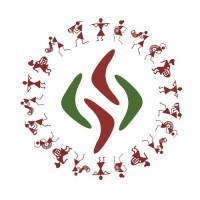
Gender Integration Expert
- Company
Bharat Rural Livelihoods Foundation (BRLF))
- Location
Nagpur, Maharashtra
- Employment Type
Full-Time
-
Functional Category
Programme Management & Implementation
-
Experience
5 - 7 years
- Date Posted
17-Nov-2025
About Bharat Rural Livelihoods Foundation (BRLF))
Bharat Rural Livelihoods Foundation (BRLF) was set up by the Government of India as an independent society under the Ministry of Rural Development, to scale up civil society action in partnership with the central and state governments. The Union Cabinet decided to form Bharat Rural Livelihoods Foundation (BRLF) through a cabinet decision on 3rd September 2013 to ensure better implementation and outreach of the government schemes and programmes in partnership with civil society organizations. It came into existence as an independent society on 10th December 2013 with an initial sanctioned amount of INR 500 crore to be allocated in two installments to create the corpus of this new society.
- Website
Overview of the Role
The role leads gender integration across the project by coordinating gender teams, developing strategies, SOPs, and training modules, and ensuring gender-responsive governance. It conducts capacity-building programs at multiple levels, facilitates women’s leadership forums, and strengthens gender mainstreaming in project activities. The position also oversees comprehensive documentation—including monthly, quarterly, and annual reports—along with case studies and success stories, ensuring high-quality, data-driven, and human-centered reporting aligned with donor and project requirements.
Job Description
Key Job Responsibilities of Gender Integration Expert:
Responsibilities of Gender Integration: -
• Responsible for Coordination of the Gender team present at block and district level.
• Design an SOP for Gender Integration for strengthening Local Governance and to promote women leadership in the project area.
• Design and document strategies to facilitate gender responsiveness local government agencies in collaboration with partner CSOs.
• Organise gender-sensitisation workshops and training sessions for the CSO and project teams. Facilitate ToTs for concerned project staff in the state.
• Support the integration of gender perspectives across all project activities in the state.
• Support in gender landscape mapping to capture institutions, enablers, barriers, and transformative stories of change.
• Design and document training modules and learning materials on gender integration, leadership, and economic empowerment of women.
• Design and track gender-related qualitative and quantitative indicators, and conduct gender impact assessments across the project’s M&E framework, ensuring both qualitative and quantitative progress is captured.
• Facilitate Mahila Grama Sabhas to prepare gender-centric AAP & GPDP plans.
• Facilitate establishing Women Mate forums, VOs, CLFs, and subcommittees and build the capacities of women mates to support women’s leadership in strengthening local governance.
• Conduct Capacity Building programs for the project staff across all levels on Gender and MGNREGA.
• Design and implement tailored capacity-building initiatives focused on gender mainstreaming and effective implementation of MGNREGA.
• Lead the planning, execution, and delivery of training programs at the state, district, and block levels.
• Independently manage end-to-end training activities, including curriculum development, logistics coordination, facilitation, and post-training follow-up.
• Ensure high-quality training delivery by using appropriate adult learning techniques and monitoring training effectiveness through feedback and evaluation tools.
Responsibilities for project-level Documentation:
1. Monthly Reporting Processes
Ensure consistency, clarity, and alignment with project indicators and donor reporting requirements.
2. Prepare Quarterly Progress Reports (QPR)
Develop comprehensive and narrative Quarterly Progress Reports (QPRs), highlighting key achievements from the reporting period, challenges encountered, lessons learned, and the action plan for the upcoming quarter
Coordinate with program and MIS teams at the district to integrate qualitative and quantitative data effectively.
3. Develop Annual Narrative Reports
Draft detailed annual narrative reports highlighting project outcomes, impact, and alignment with strategic objectives.
Ensure high-quality documentation that reflects both data-driven insights and human-centered stories from the field.
4. Document Case Studies and Success Stories
Identify and document impactful case studies and success stories that illustrate project effectiveness and community transformation.
• Ensure stories are well-structured, engaging, and aligned with organizational communication standards.
• Facilitate the Communications team from Headquarters in conducting field visits, interviews, and photo/video documentation to capture compelling human-interest stories and project narratives
Required & Preferred Qualifications
Skill
• Excellent speaking, reading, and writing skills in English and Marathi (Priority) and in Hindi (Preferred) are required;
• Ability to work in a multi-cultural/ multi-disciplinary team;
• Proven skills in documentation, report writing, and knowledge management, including experience preparing narrative reports, case studies, and success stories.
• Proficiency in using Microsoft Office Suite (Word, Excel, PowerPoint) and data management tools.
• Ability to multi-task and work well in such a team;
• Willing to travel across the project locations.
Education
Applicants must be Master’s degree in Social Sciences, Gender Studies, Development Studies, Anthropology, Sociology, Communications, or a related field from a recognized university. A Bachelor’s degree with significant relevant work experience (five to Seven years) may also be considered.
Experience
• Minimum 5 to 7 years of relevant experience working in the field of Gender across development or government programs. • Proven ability to develop and manage various forms of documentation, including monthly reports, quarterly and annual narrative reports, case studies, and success stories, as outlined in the Roles and Responsibilities. • Experience in capacity building, gender mainstreaming, and coordination with multi-level teams (block, district, and state) is highly desirable.

